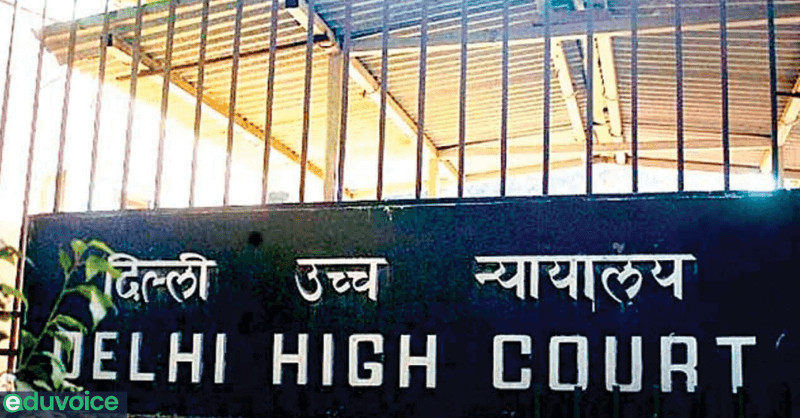The Centre has told the Delhi High Court that it has already initiated action for universalization of education up to senior secondary level, as envisaged by the NEP 2020.
In its reply filed through Central Government Standing Counsel Anurag Ahluwalia submitted that the schools under the Delhi Government as well as most of the private unaided schools in Delhi are both affiliated to the CBSE, hence, there will not be a change of curriculum for these students. Hence, the children have the full opportunity and facility for completing their education up to senior secondary level.
It is submitted that the Central Government under the centrally sponsored scheme of the Samagra Shiksha program provides additional support to the States and UTs to achieve Universal and quality education to pre-primary to higher secondary education.
The government further submitted that the vision of the scheme is to ensure inclusive and equitable quality education from pre-school to senior secondary stage in accordance with the Sustainable Development Goal (SDG) for Education.
It further submitted that the major objectives of the scheme are the provision of quality education and enhancing learning outcomes of students, bridging social and gender gaps in school education, ensuring equity and inclusion at all levels of school education, ensuring minimum standards in schooling provisions, promoting vocationalisation of education, supporting states in the implementation of RTE Act, and strengthening and up-gradation of State Councils of Educational Research and Training (SCERTs) / State Institutes of Education (SIEs) and District Institutes of Education and Training (DIETs) as nodal agencies for teacher training.
The Centre told the Delhi High Court that the Department of School Education and Learning had submitted that “the issue of extension of the Right to Education Act, 2009 (RTE Act) beyond elementary level is a major policy decision and has been discussed by the Committee set up for preparing the draft of National Policy on Education. Consequently, the Ministry is in the process of finalization of National Education Policy based on the suggestions and inputs received from various stakeholders thereon. The finalization of the policy is expected to take some more time.
It is submitted that the National Education Policy, 2020 (NEP 2020) has been passed by the Union Cabinet on July 29, 2020, and is the policy statement of the government for school education for the next 20 years. It is further submitted that the various provisions of the NEP 2020 will be implemented till 2030 so that in the decade of 2030-40, the entire policy will be in an operational mode, following which another comprehensive review will be undertaken.
Delhi High Court had earlier issued notice to Union of India through Education Secretary, on contempt petition alleging that Government has failed to decide on extending Right to Education (RTE Act 2009) up to class XII by an amendment to protect Economically Weaker Sections (EWS)/ Disadvantaged Group (DG) students despite High Court directions.
The reply has come as a response to a Contempt Petition filed by Social Jurist through Advocates Ashok Agarwal and Kumar Utkarsh complaining that due to inaction on part of Central Government, private schools countrywide throwing thousands of EWS students out of school every year after they pass class 8.
“The very objective and purpose of fundamental Right to Education are defeated if an EWS student is not allowed to continue his studies in Private school beyond class 8 and up to class 12“, submitted Advocate Ashok Agarwal.
The court is scheduled to hear the matter on March 17.For More Such
For More Such Articles, News Update, Events, and Many More Click Here






